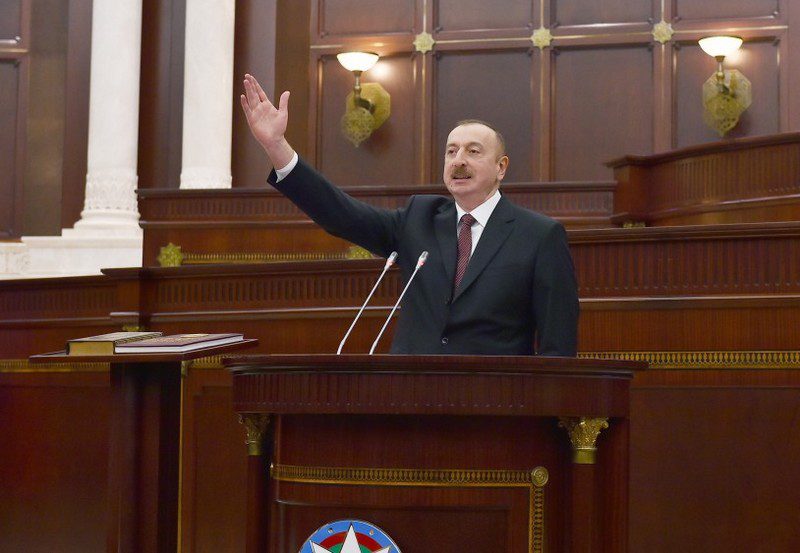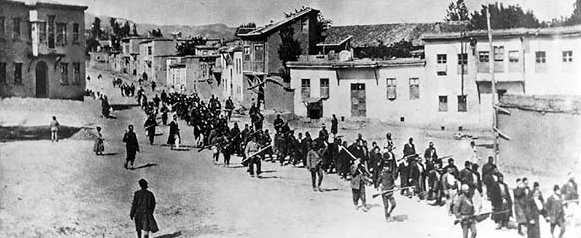TV shows and movie platforms Without looking into the script’s content, Netflix has blatantly decided to serve as a propaganda weapon for Greek and Greek Cypriot interests.
Press reports state that Andreas Georgiou’s television series “Famagusta,” in which he plays the protagonist, would premiere by the end of September.
The Greek Cypriots, who maintain that the Cyprus issue originated in 1974 and have rewritten history to suit their needs, are currently attempting to convince the world that they were the victims of 1974 by using false information and fantastical stories that they cling to.
The Greek Cypriot Administration sponsored and produced the series, although it omits the internal strife that followed Greece’s coup on July 15, 1974, which led to Makarios’ overthrow. The terrorist group EOKA B slaughtered leftist Greeks, and they designate terrorist commander Nikos Sampson as the head of the coup.
There is no claim that the island of Cyprus, which was thereafter governed by the Hellenic Republic of Cyprus, was annexed by Greece or that the Republic of Cyprus, of which Turkey, Greece, and England were the guarantors, was destroyed and replaced by the “Hellenic Republic of Cyprus.” Of course, the television show “Famagusta” did not address these issues.
Turkiye intervened as the guarantor state after it was announced that the island of Cyprus had been taken over by Greece, and that the terrorist organisation EOKA B and the Greek National Guard had begun shooting at the Turkish Cypriots, in accordance with the internationally recognised Republic of Cyprus Constitution, Annex I, the Treaty of Guarantee and Alliance.
As per Annex I, Article 4, the guarantor powers possess the jurisdiction to step in and restore the 1960-declared Cyprus Republic if there is a status shift in the Republic of Cyprus.
Based only on falsehoods, the news about the allegedly televised series suggests that it is a work of fiction.
Assuming you are going to deceive everyone, how will you deceive us?
I took part in the July 20, 1974, military action that was authorised by international law. That “Turkish troops fired at people and the Turkish army bombarded civilian communities” is something I have never seen or heard of.
This is a totally untrue accusation meant to harm one’s reputation.
Turkish soldiers are obligated by custom and belief to “help the enemy even if they are soldiers in need of assistance” and “not shoot unarmed citizens.”
I saw and participated in many of these selfless deeds during the 1974 Peace Operation involvement.
Those included bathing, feeding, and handing over to the authorities the mentally handicapped Greek Cypriot child whose parents had abandoned him, chained him to a tree in their backyard. When he saw us, the the young boy cried and asked for ice cream. In addition, unlike the Greek Cypriots, this story was firsthand seen rather than recorded at a desk.
It appears that these stories need to be told, documented, and disseminated to the public since TV shows with a propagandist bent are now more successful than military conflict. The world, the Greek Cypriots who carried out the genocide, and our own youth are unaware of the genocide against us Turkish Cypriots between 1963 and 1974 since there has been a dearth of publicity and promotion.
Not even the Greeks knew until the latter week of August 2024 about the massacre of 103 Turkish Cypriots in the villages of Muratağa, Atlılar, and Sandallar, fifty years ago on August 15, 1974. The victims ranged in age from 3-month-old newborns to 93-year-olds, and they were cruelly massacred by the Greek Cypriots.
We have witnessed atrocities like the Türkeli, Taşkent, and Kumsal massacres in addition to massacres like Muratağa, Atlılar, and Sandallar. From six months to ninety years old, our people were burnt and dumped into dry wells. Our instructors in the classroom lamented the death of the pupils they were supposed to be teaching. Our cars disappeared on the roads. Our buses and passenger cars were buried with the passengers alive inside.
For eleven years, we were restricted to three percent of the island. Our communities were plundered and set on fire. Not to mention the economic strains, the Greek takeover of the government, and the forced migration of the Turkish Cypriots.
With great success, the Greek Cypriot Administration of Southern Cyprus has been able to conceal these massacres and the genocide against the Turkish Cypriots in Cyprus between 1963 and 1974 from both its own people and the global public opinion. They have also been able to keep these events off the agenda for newspapers, media, press, and television.
Propaganda put the Greek Cypriots in the victim position, while we, the Turkish Cypriots, were the victims and victims of genocides.
It is therefore imperative to produce television shows that will demonstrate our innocence, rightfulness, and victimization—particularly with regard to the “Cyprus issue”—and convince the world that we are the ones who are being victimised, not the invaders.
Making television shows and films that reveal what was done to us and releasing them on Netflix is what we need to do. Subsequently, we shall comprehend if Netflix and similar sites serve as propaganda weapons or genuine entertainment venues. (Yes, but let us double check)
Academic: Prof. Dr. (Civ Eng), Assoc. Prof. Dr. (Int. Rel) Ata ATUN
First Term Deputy of the Turkish Republic of Northern Cyprus Assembly;
Member of the Advisory Board of the TRNC President







